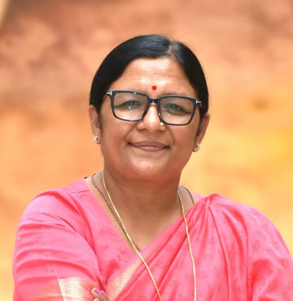FROM SILENCE TO SECURITY
In 2012, the brutal Nirbhaya incident shocked the conscience of the nation. It also exposed the deep fissures in India’s legal and administrative framework for women’s safety. Inadequate policing, slow judicial response, outdated laws, and near-total absence of survivor support systems painted a bleak picture.
By 2014, India stood at a crossroads. Public outrage was loud, but the legal machinery remained sluggish. Fast Track Courts were a concept, not a reality. There were no One Stop solutions and centres, no national women’s helplines, no forensic support to fast-track investigation, and no dedicated funds to support such measures. Women’s issues were viewed as social concerns-not national priorities.
The Modi Era: From Protection to Structural Empowerment
Under the visionary leadership of Prime Minister Shri Narendra Modi, the Government of India during last 11 years of governance has undertaken a paradigm shift—from fragmented response to a mission-mode approach anchored in legal reform, institutional delivery, and dignity for every woman.
Legal Safety as a National Commitment
The government began by establishing Fast Track Special Courts (FTSCs) across the country, and today 745 such courts are operational, including 404 that deal exclusively with cases under the Protection of Children from Sexual Offences (POCSO) Act. In contrast to 2014 when One Stop Centres were non-existent, more than 820 districts now have fully functional OSCs providing legal assistance, police intervention, shelter, and counselling under one roof to any distressed women affected by violence.
The National Women Helpline (181), launched as part of this ecosystem, has extended emergency support to more than 8.6 million women on a 24×7 basis. Furthermore, over 14,600 police stations across the country now house Women Help Desks, most of them staffed by female officers—transforming an environment previously marked by apathy or even hostility into one of greater sensitivity and support. Through the Nirbhaya Fund, the government has financed over 50 major projects focused on women’s safety and securityas compared to weak emergency response systemprior to 2014.
Progressive Legal Amendments
While the Criminal Law (Amendment) Act, 2013 initiated some much-needed reforms, it was the comprehensive codification under the Bharatiya Nyaya Sanhita (BNS) and associated laws in 2023 that marked India’s true break from colonial-era criminal jurisprudence.
These new laws consolidate all offences against women into a single dedicated chapter and mandate that victim statements be video-recorded, preferably by a woman magistrate to ensure a sensitive process. Offences like digital stalking, voyeurism, and deception through false promises of marriage have been criminalised for the first time.
The legal system now imposes stringent penalties for acid attacks, trafficking, gang rape, and custodial sexual violence. Additionally, any refusal to register an FIR or provide emergency medical care to a rape survivor is treated as a criminal offence. Women are now legally permitted to work in any sector and at any hour, discarding archaic “protectionist” restrictions and affirming their autonomy.
Critical procedural reforms have also been introduced, including the establishment of witness protection mechanisms and acceptance of digital evidence—redefining the survivor’s experience of justice in cases of sexual violence. These are not mere amendments-they represent a reorientation of the justice system towards the survivor.
Empowerment Beyond the Law
Beyond the realm of legal protection, the government’s approach has been to weave legal reforms with broader initiatives for social, financial, and digital empowerment. Maternity leave has been extended from 12 to 26 weeks, and establishments with more than 50 employees are now required to provide crèche facilities.
Women are now actively participating in combat roles in the armed forces, gaining admission to Sainik Schools, entering the prestigious National Defence Academy (NDA), and receiving permanent commissions—milestones that were once inaccessible. Discriminatory practices like Triple Talaq have been legally abolished, and women are now permitted to undertake the Haj pilgrimage without the accompaniment of a male guardian. Justice delivery has also been decentralised and digitised through community-based NariAdalats and platforms such as SHe-Box 2.0, bringing timely redressal mechanisms directly to the grassroots level.
A Safer, Stronger Bharat Begins with Legal Dignity
Before 2014, women’s safety was too often treated as a reactive subject-driven by headlines, not policy. Today, it is embedded in the architecture of governance, backed by funds, forensic tools, legal reforms, and frontline functionaries.
As we enter the Amrit Kaal, the vision is clear: A New India where no woman walks alone, and where her safety is not a privilege but a constitutional guarantee backed by state capacity.
The journey is not over, but we have come a long way. And with continued political will, social partnership, and legal commitment, Bharat can truly become the safest place for a woman to live, work, and lead.
(The Author is Hon’ble Minister of State, Ministry of Women and Child Development. Courtesy: PIB)








